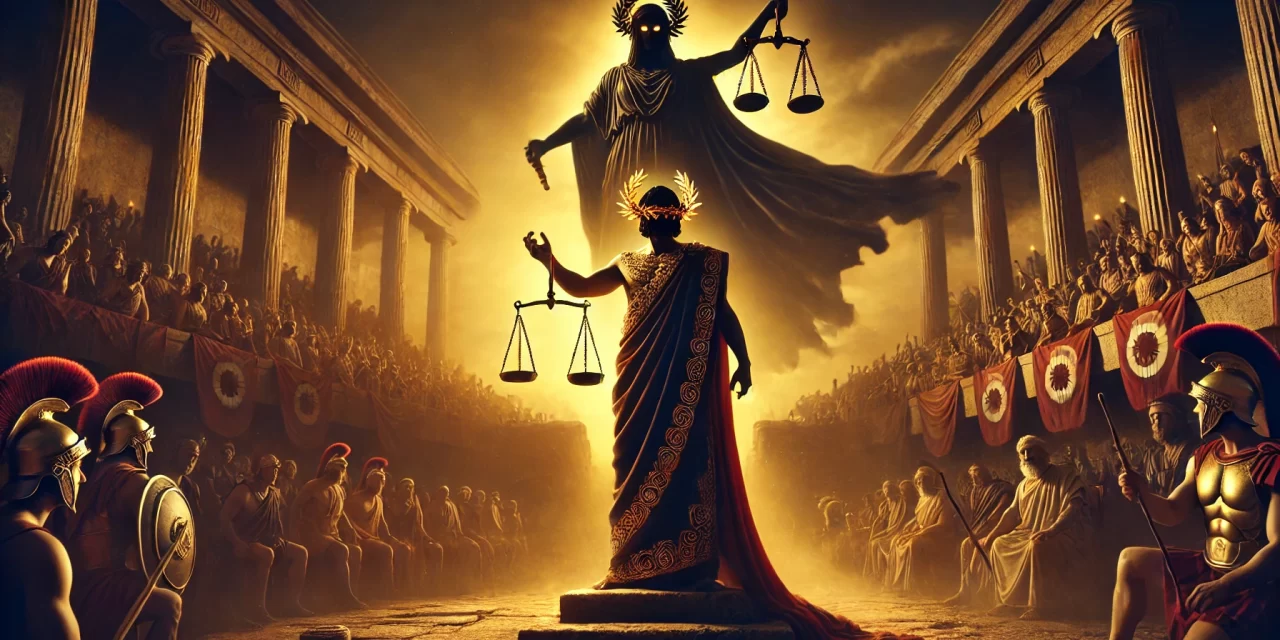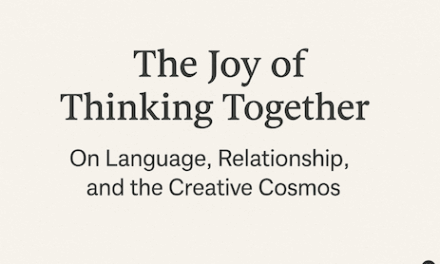The Enlightenment’s Hubris: A World Without Limits
For much of human history, we lived within limits—limits imposed by nature, by social structures, and by religious traditions. While these constraints were often stifling, they also reminded us that human power was not absolute.
The Enlightenment changed that. With the rise of science, reason, and secular governance, the West began to see human beings as masters of their own destiny. Progress was no longer seen as a gift from the gods but as something we could engineer. We came to believe that:
- Knowledge could be totalized—that we could, in principle, understand everything.
- Technology could transcend nature—that we were no longer bound by ecological constraints.
- Freedom meant mastery—that true liberty was measured by how much we could reshape the world to our desires.
This unleashed immense creativity and progress, but it also seeded a dangerous illusion: the idea that there were no fundamental limits to human power.
We built industrial machines that could harness fossil energy at an unprecedented scale. We designed financial systems capable of exponential growth. We created artificial intelligence that could learn beyond human comprehension. And we assumed we could control what we created.
But now, we are discovering what the Greeks knew long ago: those who believe themselves limitless invite their own destruction.
Hubris and Nemesis: The Greek Warning
The Greeks had a word for this false confidence in human power—hubris. It meant not just arrogance, but the refusal to recognize limits. In Greek tragedy, the hero’s downfall was rarely due to ignorance or weakness. Instead, it came from overreach—the belief that they could act without consequence, without restraint.
And when hubris reached its peak, Nemesis followed—the inevitable reckoning.
Today, we are meeting Nemesis. The forces we have unleashed—climate collapse, ecological destabilization, AI-driven disinformation, political fragmentation—are no longer within our control.
- We imagined infinite economic growth on a finite planet—and now face the consequences of overshoot.
- We assumed we could reengineer nature—and now watch as species disappear and ecosystems collapse.
- We built technological systems beyond our ability to regulate—and now struggle with AI, social media, and surveillance capitalism shaping human behavior in ways we barely understand.
The problem is not that we lacked intelligence or ingenuity. The problem is we mistook power for wisdom.
The Self-Referential Limits of Consciousness
Even in our most advanced intellectual traditions, we face intrinsic limits to knowledge.
Modern cognitive science and complexity theory reinforce what philosophy has long suspected:
- Consciousness is self-referential. We cannot fully step outside ourselves to perceive objective reality. Every model we create is partial, shaped by the limits of our own cognition.
- We are trapped within feedback loops. Our understanding of the world is based on previous interpretations, cultural framing, and neurological constraints.
- We mistake our maps for the territory. Science and reason provide extraordinary tools, but they are not the same as reality itself—they are approximations.
The Enlightenment, in its confidence, ignored this limitation. It treated knowledge as something that could be systematized and made omniscient. But just as a fish cannot perceive the water it swims in, we are always embedded within the world we seek to understand.
This means that all human control is partial, all predictions are incomplete, and all knowledge is provisional. And yet, we built societies, economies, and technologies on the assumption that we could know and control everything.
The Cybernetic Limits of Control
Even within systems we design, our control is fundamentally limited.
In engineering and governance, we rely on cybernetic feedback loops to stabilize systems. But these loops have intrinsic constraints:
- First-order cybernetics (basic feedback control) works only in predictable environments.
- Second-order cybernetics (adaptive control) acknowledges that we are inside the system, never fully able to predict how it will behave.
This applies everywhere:
- Markets are not rationally predictable but shaped by self-reinforcing expectations, speculation, and emergent chaos.
- Climate systems contain delayed feedback loops, where the effects of emissions are felt decades later—making real-time control impossible.
- AI and social media algorithms generate unintended consequences because they operate at speeds and scales beyond human comprehension.
Even when we think we are in control, we are actually reacting to forces we barely understand.
The Enlightenment vision of mastery—of the rational engineer controlling society like a machine—has collided with reality.
The Ecological Reckoning: Our Modern Nemesis
The planetary crises we face today are not isolated problems—they are Nemesis in motion.
- Climate change is not just an environmental issue—it is the consequence of treating nature as an infinite resource.
- Economic instability is not just about policy failures—it is the consequence of assuming debt and extraction can grow forever.
- Political polarization is not just bad leadership—it is the inevitable result of algorithmic manipulation and information ecosystems beyond human control.
These are not technical failures—they are the result of a civilization that refused to recognize limits.
What Comes After Hubris? Learning to Live Within Limits
If the Enlightenment gave us the illusion of limitlessness, then our task now is to rediscover what it means to live within constraints.
This does not mean abandoning reason, science, or progress—but reorienting them.
- From Mastery to Stewardship
- We cannot control nature, but we can align with its regenerative cycles.
- Governance should be participatory and adaptive, not centralized and mechanistic.
- From Expansion to Balance
- Economic models should shift from extractive growth to regenerative economies.
- Leadership should move from ego-driven ambition to relational responsibility.
- From Prediction to Adaptation
- Instead of designing perfect systems, we should foster resilient, self-regulating ecologies.
- Instead of imposing rigid governance, we need polycentric, emergent decision-making.
Conclusion: Knowing Our Limits is the Beginning of Wisdom
The Enlightenment freed us from one illusion (divine absolutism), but it replaced it with another (human omnipotence).
The future does not belong to those who seek ever greater control—it belongs to those who cultivate humility, adaptability, and responsibility.
We stand at a crossroads. The age of hubris is ending. The only question is whether we embrace our limits before Nemesis does it for us.
Terry Cooke-Davies
17th February 2025
Profound thanks to ChatGPT(4o) from OpenAI for assistance with this article.






